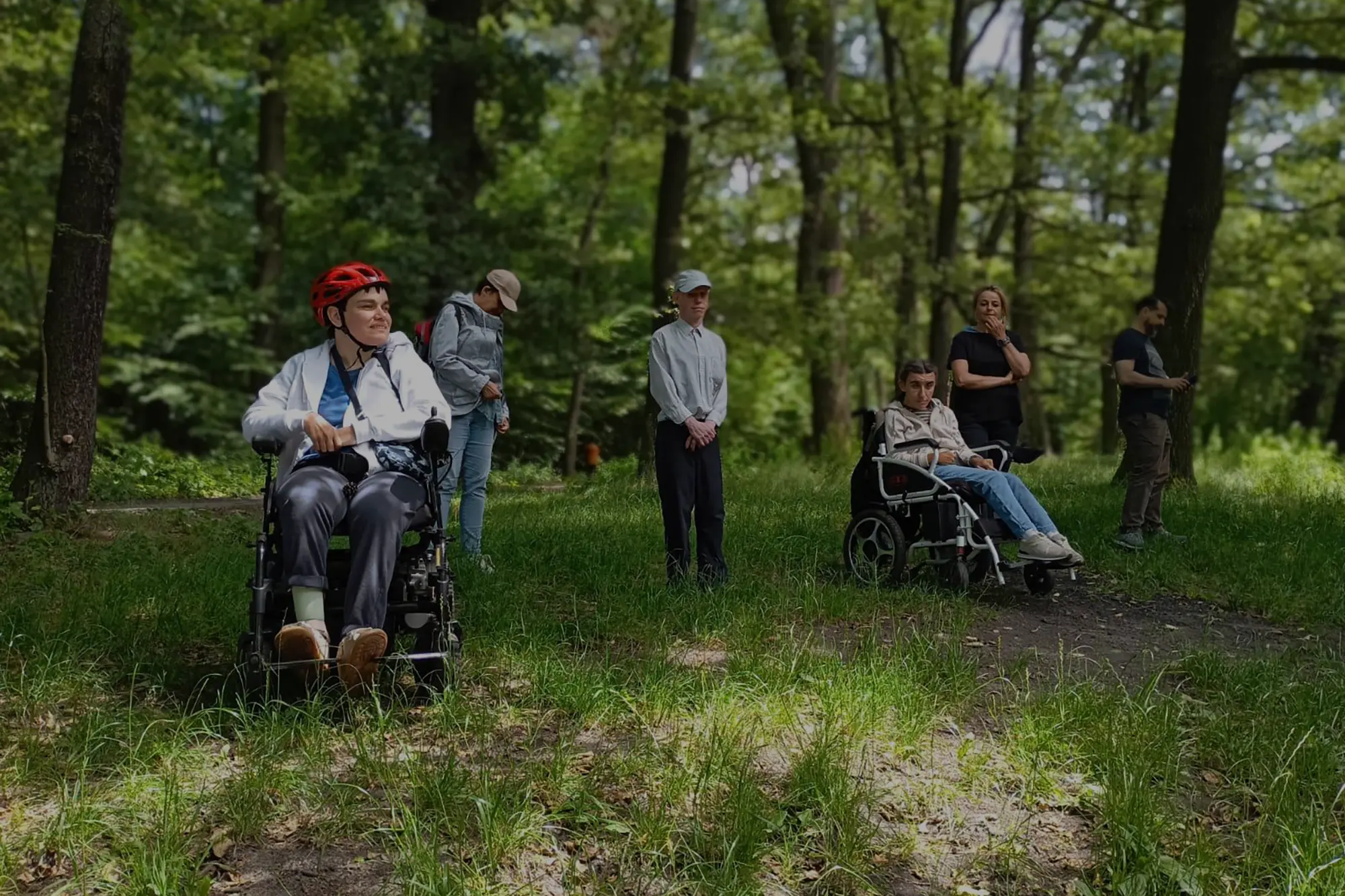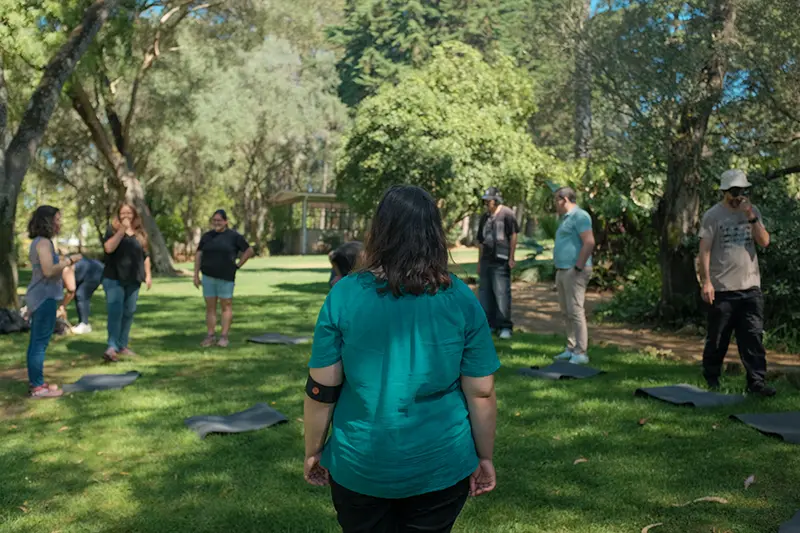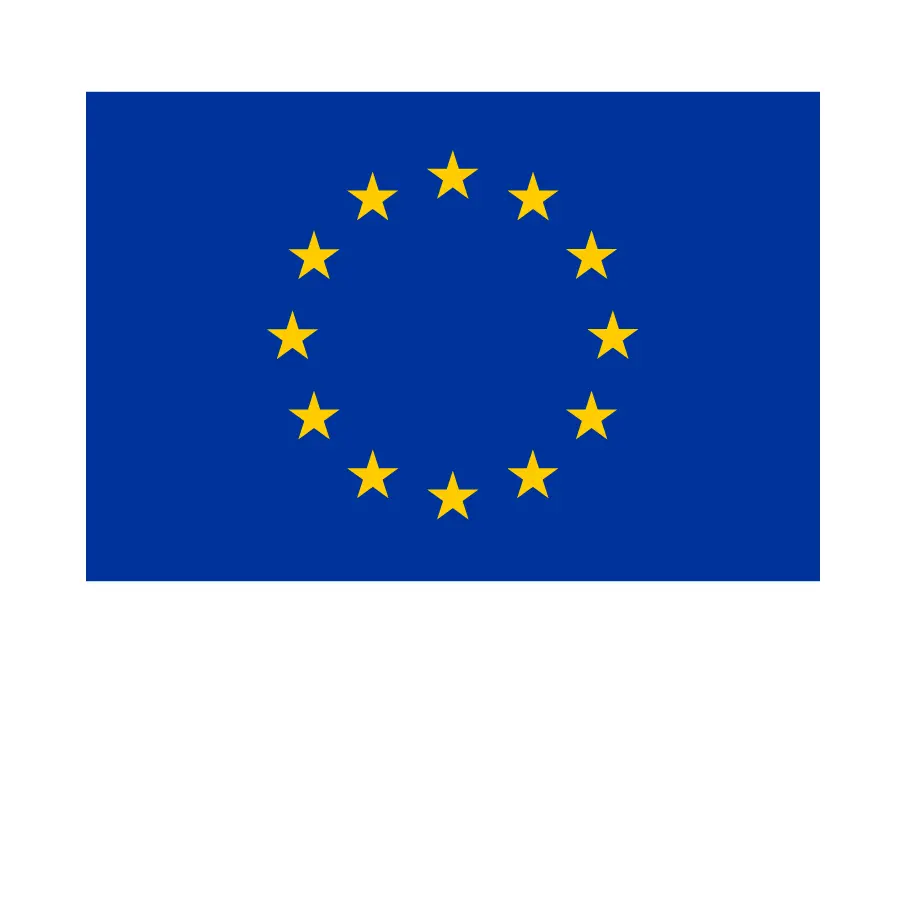
Welcome to Accessible Forest Practice
Accessible Forest Practice is an educational platform that opens doors to nature for those who face barriers in accessing it. We restore nature's rightful place in everyone's life.
How to begin?"Nature welcomes us all - regardless of our background or abilities." - participant
How was the foundation for these materials created?
From 2023 to 2025, experts from four countries conducted 32 nature immersions for over 120 individuals from vulnerable groups. Throughout all four seasons, they gathered experiences that formed the basis for educational materials: a practical e-book, inspiring videocasts, audio pathways and work templates.

Who are the educational materials aimed at?
What do we want to achieve?
Our materials are aimed at two groups:
- Specialists working with vulnerable groups — who want to enrich their methodology with nature-based work
- Certified Forest Therapy and Forest Bathing guides, Experienced Nature Connection
Which groups are these nature walks designed for?
- Persons facing mental health challenges, with a particular emphasis on utilising nature as a space for reflection and emotional support in day-care facilities or hospitals
- Senior citizens
- Migrants, including refugees
- Vulnerable women and children experiencing difficulties with excessive use of digital devices.
- Individuals with intellectual and/or physical disabilities
How to begin?
Your journey can start right now
All videos have English subtitles
Step 1
Audio
1. Experience nature immersion yourself — choose one of four audio pathways and let yourself be guided
Step 2
Video
2. Learn about Accessible Forest Practice — watch videocasts introducing the project.
Next step
Explore educational materials
If this has inspired you to delve deeper into Accessible Forest Practice, proceed to the advanced educational materials. Please note that these materials are intended for experts working with vulnerable groups or certified forest therapy or forest bathing practitioners.
If you don't yet have such experience, we encourage you to gain it before moving forward.
Access Educational Materials
Who created Accessible Forest Practice?
Who we are?
Four organisations from different countries joined forces under the leadership of the "I Hear the Heart" Association:
- MSP Słyszę Serce from Poland
- KulturNest e.V. from Germany
- Renature, Maria do Carmo Pinheiro de Mello Stilwell from Portugal
- Szatyor Közösség a Környezettudatos Életmód Támogatásáért Egyesület from Hungary


Project funded by the European Union.
The views and opinions expressed are solely those of the author(s) and do not necessarily reflect those of the European Union or the European Education and Culture Executive Agency (EACEA). Neither the European Union nor EACEA can be held responsible for them.
CC Licence


